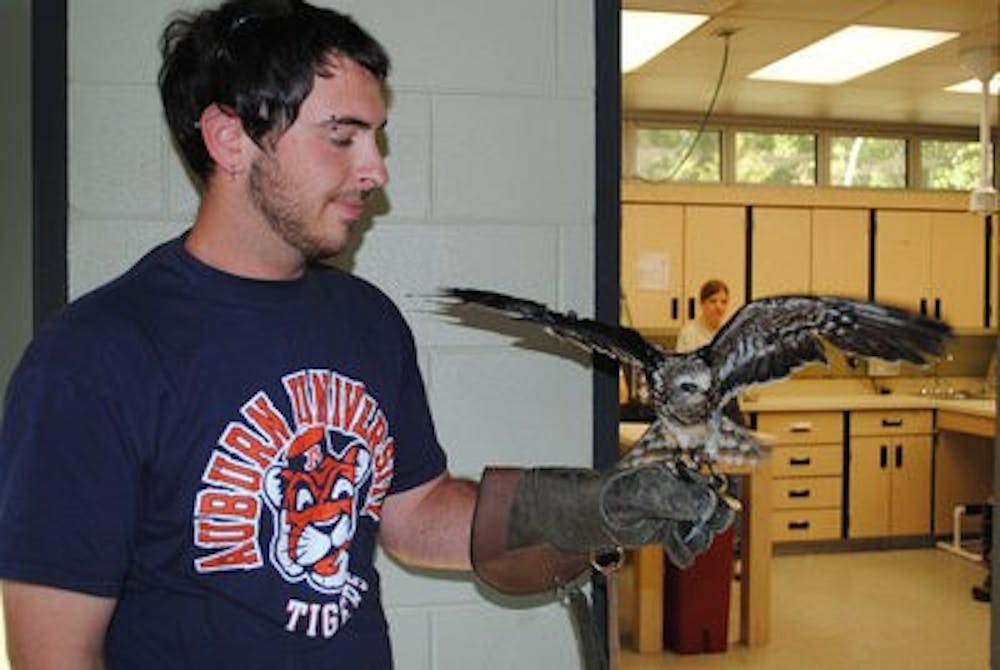Those interested in working with vultures, red-tailed hawks, the University's symbolic bald eagle and other raptors can volunteer at the Southeastern Raptor Center.
The center provides students with flexible hours, allowing them to receive hands-on experience and education at their convenience.
The Raptor Center has two main goals: education and rehabilitation.
The education side focuses on taking the birds out to shows and schools.
The rehabilitation side concentrates on restoring the birds to health and what the workers call "fight condition" for release back into the wild.
As a volunteer, tasks such as cleaning and feeding are a given.
Nonetheless, there are tasks, such as doing data work, changing bandages and giving medicine (with supervision), to which students can be promoted if deemed dependable and responsible enough.
"Certainly, volunteering sounds like fun, and it is, but there is a lot of hard work," said Jamie Bellah, director of the Raptor Center and department head of clinical sciences. "But one of the more rewarding experiences we can give the dependable volunteers that help us for a long time is to allow them to release the birds we rehabilitate."
Orientation and training sessions are held for those who anticipate becoming a volunteer for the center.
Topics and lessons include how to handle, prepare food for and feed the birds, as well as the different species of birds the Raptor Center commonly treats, their behaviors, life histories, characteristics and whether they migrate.
Though the center receives funds from Auburn, friends, educational programs and Football Fans and Feathers, it is not enough to pay for trained professionals, so volunteers are crucial to the center.
"I don't think we could do what we do without them," Bellah said. "We take in 250 to 300 raptors a year, and that's a lot of care. If it were just Liz and I taking all of them, it would be very difficult."
The Raptor Center is just as important to the more experienced volunteers and student workers, as they see it as a learning experience.
"This is what I want to do in the future, so it's good to have experience," said Andrew Hopkins, senior in zoology. "It'll help me with my resume. Hopefully, it'll get me a job."
The Raptor Center mainly appeals and advertises to preveterinary, wildlife, zoology and other basic science majors.
"But it's welcome to anybody," said George Washburn, senior in zoology. "It's a great experience if you're not squeamish with cutting up food or anything. Very rarely will you get a chance to work with these birds."
Those interested can find out more information by contacting Roy Crowe or Marianne Murphy at 334-844-6943 for the education side of the center, or Liz Crandall at 334-844-6347 for rehabilitation and transport.
Do you like this story? The Plainsman doesn't accept money from tuition or student fees, and we don't charge a subscription fee. But you can donate to support The Plainsman.




